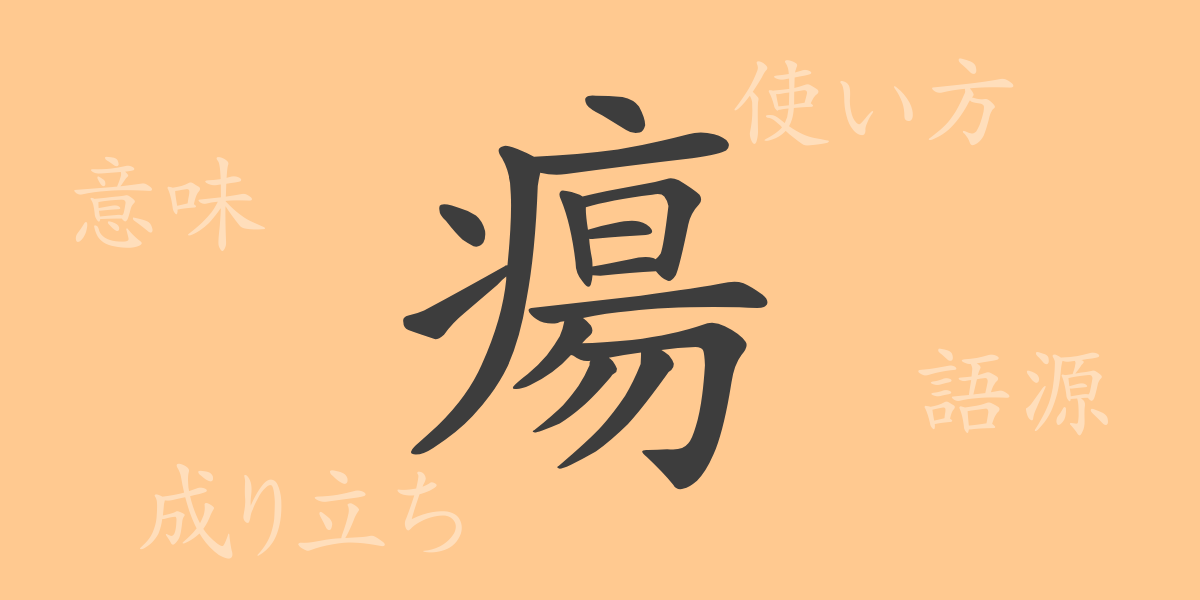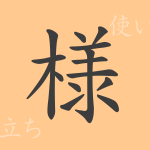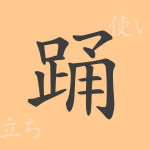Japanese (にほんご, Nihongo) has a rich kanji (かんじ, Kanji) culture, with many characters that are not commonly seen in daily life but hold deep meanings. “瘍 (よう, Yō)” is one such kanji, historically used in words related to our health and daily lives. This article delves into the origins, meanings, usage, readings, and compounds of “瘍 (よう, Yō)” to uncover its charm.
Origins of 瘍 (よう, Yō)
To explore the origins of the kanji “瘍 (よう, Yō),” we need to trace back its etymology. “瘍 (よう, Yō)” is a character related to illness, and its presence can be found in ancient Chinese medical texts. Originally, it was used to refer to swellings or ulcers that appear on the body’s surface. This kanji is composed of the radical “疒 (やまいだれ, Yamai-dare),” which relates to disease, and the character “羊 (よう, Yō),” indicating that it was historically used to describe a sheep suffering from illness.
Meaning and Usage of 瘍 (よう, Yō)
“瘍 (よう, Yō)” is primarily used as a medical term, referring to swellings, ulcers, abscesses (膿瘍, のうよう, Nōyō), and conditions where parts of the body swell and are accompanied by pain or inflammation. This kanji is often used in specialized contexts and is not commonly found in everyday conversation. However, it is an indispensable term in medical literature and professional health information.
Readings, Stroke Count, and Radical of 瘍 (よう, Yō)
Understanding the readings and components of the kanji “瘍 (よう, Yō)” is crucial for a deeper knowledge of the character.
- Readings: The on’yomi (音読み, Onyomi) is “ヨウ (よう, Yō),” and there are no kun’yomi (訓読み, Kunyomi).
- Stroke Count: It has a total of 17 strokes.
- Radical: The radical is “疒 (やまいだれ, Yamai-dare),” which relates to disease.
Compounds, Idioms, and Proverbs Using 瘍 (よう, Yō)
Compounds and idioms that include “瘍 (よう, Yō)” are often related to medicine and health. For example, “癰瘍 (ようよう, Yōyō)” refers to an abscess, indicating a condition where part of the body becomes infected and swollen. Additionally, “瘍医 (ようい, Yōi)” refers to a doctor specializing in the treatment of swellings and ulcers. These terms are familiar to those with professional knowledge or experience in illness and treatment.
Summary on 瘍 (よう, Yō)
In this exploration, we have looked in detail at the medical background, meanings, and usage examples of the kanji “瘍 (よう, Yō).” While it is not frequently used in daily life, “瘍 (よう, Yō)” is a crucial kanji in the medical field, and understanding it can be valuable for those interested in health. By learning the rich history and meanings of each kanji, we can gain a deeper understanding of the Japanese language and its culture.
“`

























